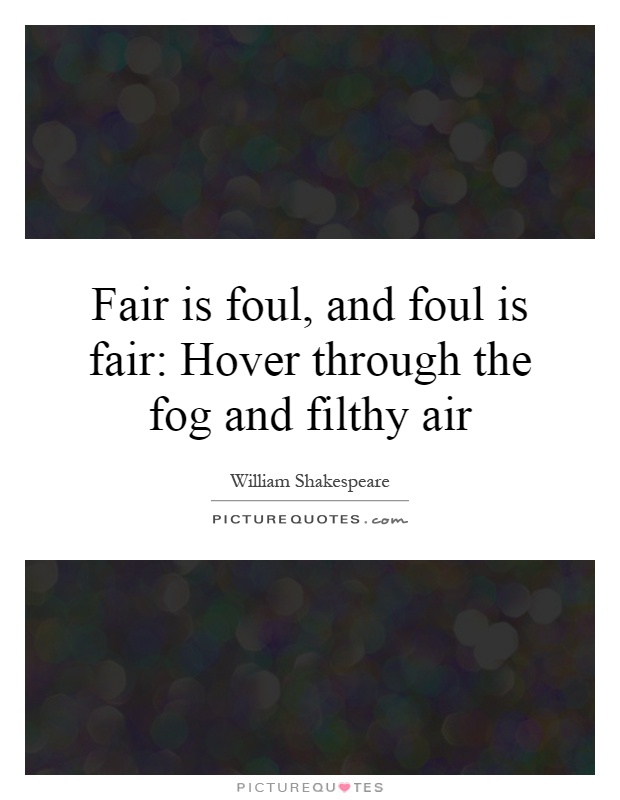Fair is foul, and foul is fair: Hover through the fog and filthy air

Fair is foul, and foul is fair: Hover through the fog and filthy air
In William Shakespeare's play Macbeth, the opening lines of Act 1, Scene 1 set the tone for the entire story. The three witches chant, "Fair is foul, and foul is fair: Hover through the fog and filthy air," as they discuss their plans to meet Macbeth. These lines are not only a foreshadowing of the events to come, but they also serve as a thematic statement that runs throughout the play.The idea that "fair is foul, and foul is fair" suggests a sense of moral ambiguity and confusion. Things that appear good may actually be evil, and vice versa. This theme is central to the character of Macbeth himself, who starts out as a noble and honorable man but is ultimately consumed by his ambition and desire for power. The witches' prophecy that he will become king sets him on a path of deceit, murder, and betrayal, leading to his downfall.
The image of hovering through the fog and filthy air further emphasizes the sense of darkness and uncertainty that pervades the play. The fog represents the confusion and moral ambiguity that Macbeth and the other characters experience as they navigate their way through a world where appearances can be deceiving. The filthy air suggests a sense of corruption and decay that infects everything it touches.
The witches themselves embody this sense of moral ambiguity and darkness. They are supernatural beings who manipulate the fates of mortals for their own amusement, blurring the lines between good and evil. Their prophecies set in motion a chain of events that ultimately lead to Macbeth's downfall, highlighting the destructive power of ambition and greed.
Overall, the opening lines of Macbeth serve as a powerful introduction to the themes and motifs that will be explored throughout the play. They set the stage for a story of moral ambiguity, deception, and the destructive consequences of unchecked ambition. Shakespeare's use of language and imagery in these lines creates a sense of foreboding and unease that lingers throughout the play, making them a fitting introduction to one of his most famous tragedies.












 Friendship Quotes
Friendship Quotes Love Quotes
Love Quotes Life Quotes
Life Quotes Funny Quotes
Funny Quotes Motivational Quotes
Motivational Quotes Inspirational Quotes
Inspirational Quotes